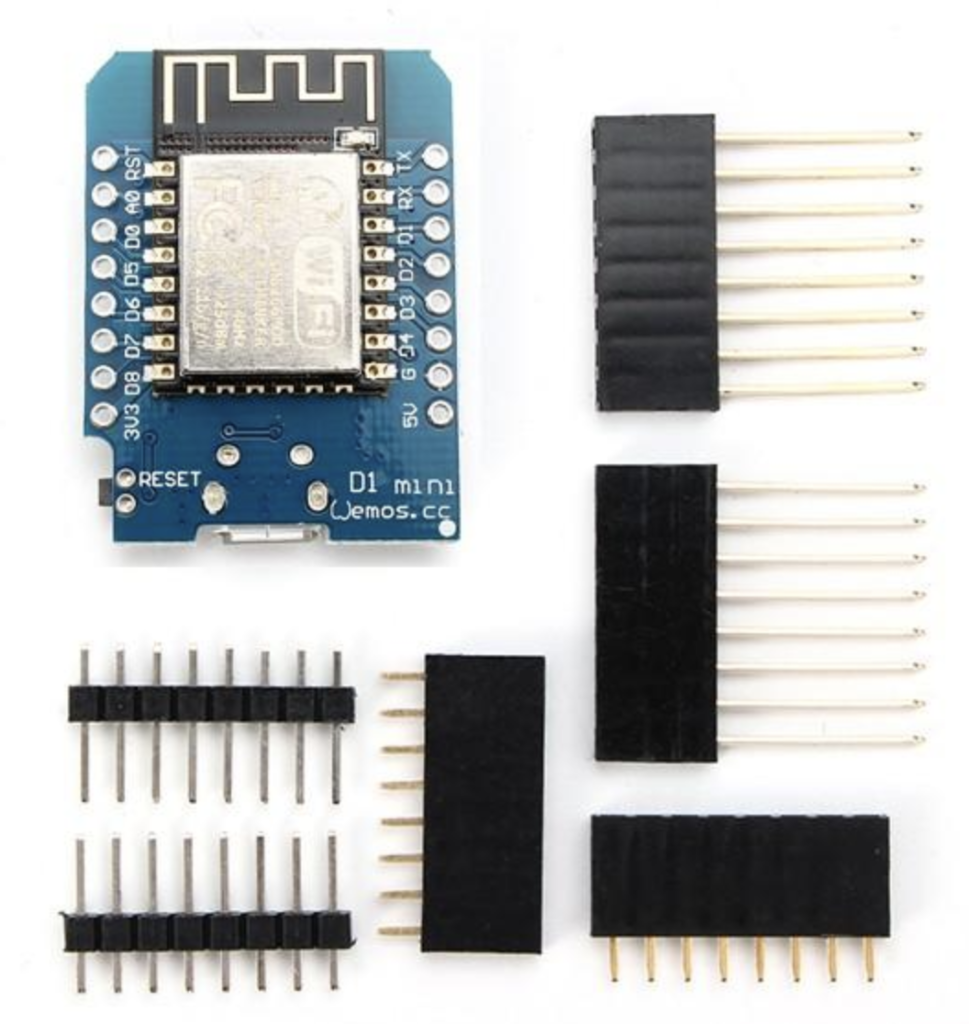Over the last year I’ve spent a small amount of money and a larger amount of time accumulating a bunch of development modules from banggood. This began mostly with me getting some spare Arduino modules cheaply. Whereas an official Arduino might cost you $25 or so from Adafruit or Sparkfun, you can get a Geekcreit clone of the same board for about $4 including shipping from China.
But you can import some other fun things besides Arduino.
A year and a half ago, I had received my first ESP8266 boards based upon the Arduino form factor. These would cool boards, based upon the ESP8266 wireless module from Espressif. The cool thing about these boards is that you can use the Arduino environment that you might already be familiar with to program, but the controllers themselves are significantly more powerful, and include wireless access. I have a few of these Arduino formfactor boards around, but they turned out to be less helpful than I would like, as the pin outs are moderately different and few shields are compatible. So instead, I’ve accumulated a fair number of ESP8266 boards which are based upon the format called “Wemos D1 Mini”:
I’ve been having a lot of fun with these.
But in the last year, Espressif has started shipping a new chip, the ESP32, which has a number of cool new features, but which most notably include Bluetooth Low Energy (BLE) and a dual core processor. At first, these chips were fairly hard to get, and modestly more expensive, but now the pipelines appear to be full, and the necessary software support is in a pretty good state.
Banggood carries a good basic module for just $7.
And, you can get a module with an OLED module premounted for about $11.
I’ve had these ESP32 modules lying around for a while and haven’t done much with them. I thought today that perhaps I should dust them off and port my satellite prediction code to these modules, and make a tiny little gadget which could sit on my desk and notify me (maybe even via bluetooth on my phone?) of upcoming passes of the ISS or other amateur satellites.
I had prototyped such a thing using a small OLED display on the ESP8266, and had the code lying around, including the graphic display which is the same sort that is on my ESP32 board. Here’s a video I made of the old code.
I was hoping that it would be straightforward to port the code to the ESP32. Sadly, a few minutes of work revealed that the interface to WiFi capabilities on the ESP8266 and the ESP32 were not entirely compatible. In particular, most of the networking on the ESP8266 was being driven by a series of callbacks which aren’t implemented (as far as I can tell) on the ESP32. I also used an NTP client library on the ESP8266 which might be unsupported on the ESP32.
So, it appears that I’ll need to do a bit more digging to make this work.
I’ve also begun to ponder that if the Arduino code between the ESP8266 and the ESP32 is less easy to keep compatible, then maybe I should simply not use the Arduino framework at all, and use the lower-level ESP-IDF framework for programming. It’s not clear how hard it will be to port the necessary OLED drivers (or what support already exists) but I might give it a try.
Ultimately my goal is to implement some code for the $11 module that wakes up, finds open or predefined Internet access, and synchronizes its time with NTP. It then contacts celestrak.com and downloads current orbital elements for the satellites I’m interested in, and then uses my satellite code to predict the position and passes of each satellite, displaying them on the tiny OLED display.
Hey, it sounds like fun. I’ll make the code available via github when I have it sorted out.
If this project sounds interesting, drop me a note on twitter (@brainwagon) or leave a comment.
